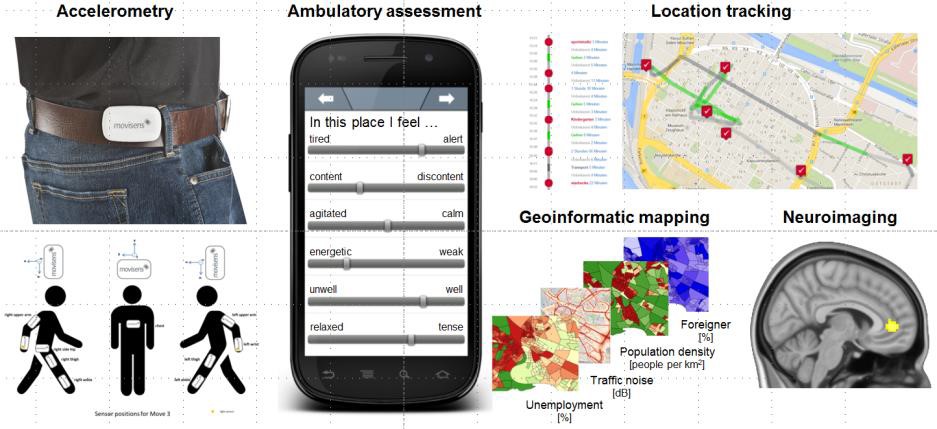Urban Vegetation and Mental Health (TreeNeuro)
Urban environments pose specific challenges for mental health. Studies show that city dwellers have a higher risk of suffering from neuropsychiatric disorders such as anxiety or depression. Trees and green spaces in the city could act as protective factors by reducing stress and improving emotional well-being. Research has already found evidence that larger urban forests correlate with fewer mental health problems and fewer heat-related hospital visits.
The scientific project "TreeNeuro" is therefore investigating how urban green spaces influence the emotional well-being of city dwellers. The aim is to identify the characteristics of urban trees that have a positive impact on mental health and to investigate the socio-demographic characteristics of people who particularly benefit from urban trees. The project uses an innovative multidisciplinary approach that combines brain imaging, smartphone app, geolocation and psychological evaluations. By analyzing heart rate, salivary cortisol and brain activity during exposure to urban green spaces, the protective properties of trees will be identified. The results could provide important information for urban planning and public health policy to make cities more liveable and healthier.


